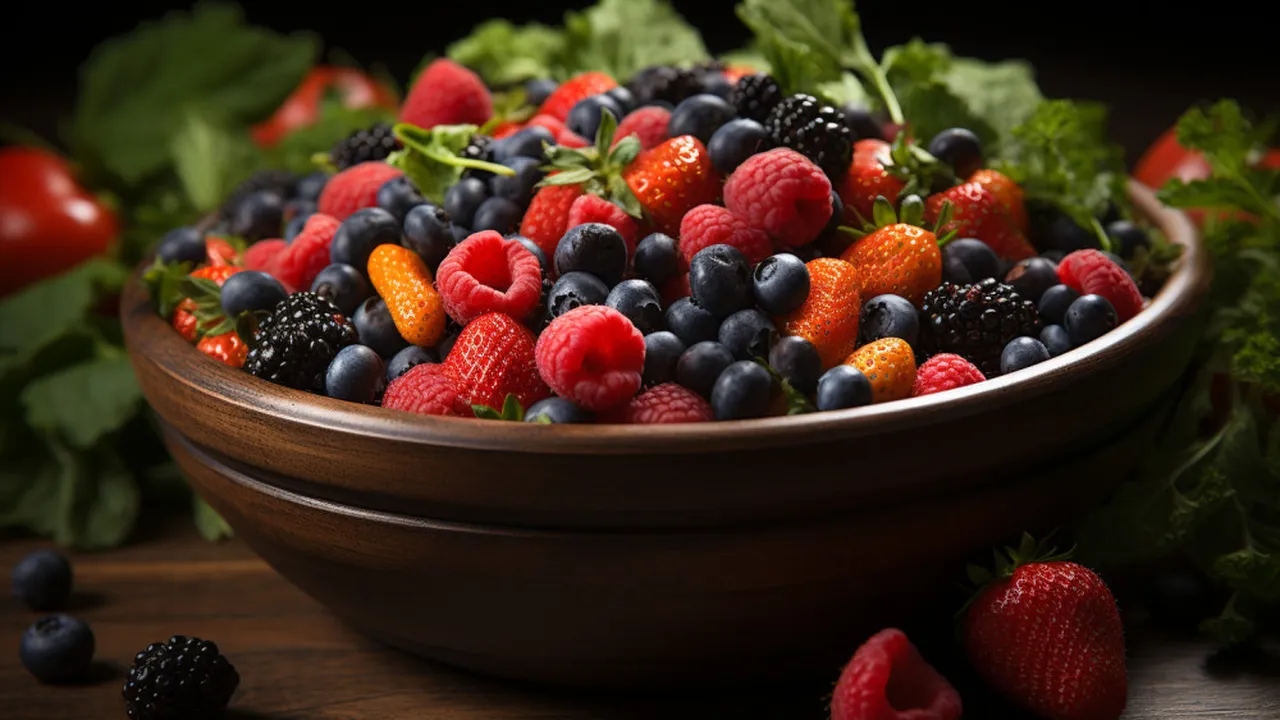5 Superfoods You Should Add to Your Diet Today
Incorporate 5 superfoods into your diet. Boost your health with nutrient-dense foods for energy and vitality.

5 Superfoods You Should Add to Your Diet Today
Hey there, health enthusiasts! Ever feel like you're constantly searching for that extra edge in your diet, something that can really supercharge your well-being? Well, you're in luck! Today, we're diving deep into the world of 'superfoods' – those nutritional powerhouses packed with vitamins, minerals, antioxidants, and all sorts of good stuff that can seriously boost your energy, vitality, and overall health. Forget complicated diets; sometimes, it's about adding a few key players to your plate. We're going to break down five incredible superfoods that are easy to find, delicious to eat, and offer a ton of benefits. Plus, we'll even chat about some specific products and how to get them into your daily routine. Let's get started!
Understanding Superfoods What Makes Them So Super
Before we jump into our top five, let's quickly clarify what we mean by 'superfood.' It's not a scientific term, but rather a marketing one used to describe foods that offer maximum nutritional benefits for minimal calories. They're typically rich in vitamins, minerals, antioxidants, and phytochemicals – plant compounds that have protective or disease-preventing properties. Think of them as nature's little health boosters, designed to help your body function at its best. They can support everything from your immune system to your brain health, and even help fight off chronic diseases. So, when you hear 'superfood,' think nutrient-dense, health-promoting, and seriously good for you!
Superfood 1 Blueberries Your Brain Boosting Berry Powerhouse
First up, we have the humble yet mighty blueberry. These little blue gems are often hailed as one of the most potent superfoods, and for good reason! They're absolutely bursting with antioxidants, particularly anthocyanins, which give them their vibrant color and are fantastic for fighting off free radicals in your body. This means they can help reduce oxidative stress, which is linked to aging and various chronic diseases. But that's not all – blueberries are also great for your brain!
Blueberry Benefits Cognitive Function and Antioxidant Richness
Studies have shown that regular consumption of blueberries can improve memory and cognitive function. The antioxidants in blueberries help protect brain cells from damage and can even stimulate the growth of new brain cells. They're also known to improve blood flow to the brain, which is crucial for optimal performance. Beyond brain health, blueberries are a good source of Vitamin C and K, and dietary fiber, supporting your immune system and digestive health. Plus, they're relatively low in calories, making them a perfect guilt-free snack.
How to Incorporate Blueberries into Your Daily Diet Delicious Blueberry Recipes and Products
Adding blueberries to your diet is super easy and versatile. You can enjoy them fresh, frozen, or even dried. Here are some ideas:
- Smoothies: A handful of frozen blueberries is a fantastic addition to any smoothie. They add natural sweetness and a beautiful color.
- Oatmeal or Yogurt Topping: Sprinkle fresh or frozen blueberries over your morning oatmeal, Greek yogurt, or cereal for an antioxidant boost.
- Salads: Yes, really! Blueberries can add a surprising burst of flavor and sweetness to savory salads, especially those with spinach or goat cheese.
- Baking: Muffins, pancakes, or even a healthy blueberry crumble can be a delicious way to get your fix. Just be mindful of added sugars.
- Snack: Simply eat them by the handful! They're a perfect grab-and-go snack.
Recommended Blueberry Products and Pricing
When it comes to buying blueberries, fresh is always great, but frozen is often more economical and just as nutritious, especially if you're using them in smoothies or cooking. Here are some product considerations:
- Fresh Blueberries: Look for organic options if possible, though conventional are still very healthy. Prices can vary widely by season and region, but expect to pay around $3-$6 for a pint (about 6 oz) in the US, and similar equivalents in Southeast Asia (e.g., 100-200 THB for a small punnet in Thailand, 15-30 MYR in Malaysia).
- Frozen Blueberries: These are a fantastic year-round option. Brands like Kirkland Signature Organic Blueberries (Costco) or Dole Frozen Blueberries are widely available. A large bag (e.g., 3 lbs) can cost around $10-$15 in the US, offering great value. In Southeast Asia, local supermarket brands or imported options like Birds Eye can be found for around 150-300 THB/MYR for a 500g bag.
- Dried Blueberries: Great for trail mixes or as a snack. Be aware of added sugars. Brands like Trader Joe's Dried Wild Blueberries or Ocean Spray Dried Cranberries & Blueberries are popular. A 6-8 oz bag might be $4-$7.
- Blueberry Powder: For a concentrated boost, especially in smoothies. Brands like Terrasoul Superfoods Organic Wild Blueberry Powder (around $20-$30 for 4-8 oz) are available online.
Superfood 2 Chia Seeds Tiny Seeds Big Nutritional Impact
Next on our list are chia seeds. These tiny, unassuming seeds might not look like much, but they are absolute nutritional powerhouses! Originating from Mexico and Guatemala, chia seeds were a staple in ancient Aztec and Mayan diets, prized for their ability to provide sustained energy. And guess what? Modern science totally backs up their superfood status.
Chia Seed Benefits Omega 3 Fiber and Protein Powerhouse
Chia seeds are an incredible source of omega-3 fatty acids, particularly alpha-linolenic acid (ALA), which is crucial for heart health and reducing inflammation. They're also packed with dietary fiber – seriously, just two tablespoons can provide a significant chunk of your daily recommended intake! This fiber content is fantastic for digestive health, helping to keep things regular and promoting a healthy gut microbiome. Plus, it helps you feel full and satisfied, which can be a big win for weight management. And if that wasn't enough, chia seeds are also a good source of plant-based protein, calcium, magnesium, and phosphorus. They're basically a one-stop shop for a ton of essential nutrients.
How to Incorporate Chia Seeds into Your Daily Diet Easy Chia Seed Recipes and Usage Tips
The beauty of chia seeds is how easy they are to incorporate into almost anything. They have a very mild flavor, so they won't overpower your dishes. The most common way to use them is to let them soak in liquid, where they absorb up to 10-12 times their weight, forming a gel-like consistency. This makes them excellent thickeners and binders.
- Chia Pudding: This is probably the most popular use! Mix chia seeds with milk (dairy or non-dairy), a sweetener, and some fruit for a delicious and healthy breakfast or snack.
- Smoothie Booster: Add a tablespoon or two to your morning smoothie for an extra dose of fiber, omega-3s, and protein.
- Oatmeal or Cereal Topping: Sprinkle them dry over your breakfast for a subtle crunch and nutritional boost.
- Baking: Use them as an egg substitute in vegan baking (1 tbsp chia seeds + 3 tbsp water, let sit for 5 minutes). They also add texture and nutrients to breads, muffins, and cookies.
- Salad Dressing Thickener: Blend a small amount into your homemade salad dressings to give them a thicker consistency and added nutrients.
Recommended Chia Seed Products and Pricing
Chia seeds are widely available in most grocery stores and health food shops. Look for organic options if possible.
- Whole Chia Seeds: Brands like Nutiva Organic Chia Seeds or Spectrum Essentials Organic Chia Seeds are popular. A 12-16 oz bag typically costs around $8-$15 in the US. In Southeast Asia, local brands or imported options like Bob's Red Mill can be found for around 80-150 THB/MYR for a 250-500g bag.
- Ground Chia Seeds (Chia Flour): Some people prefer ground chia seeds for easier digestion or to incorporate into baking. Brands like Navitas Organics Chia Powder are available, usually at a slightly higher price point.
Superfood 3 Spinach Your Leafy Green Nutrient Powerhouse
Popeye was onto something! Spinach, our third superfood, is a leafy green vegetable that truly lives up to its reputation. It's incredibly nutrient-dense, meaning you get a huge bang for your buck in terms of vitamins and minerals, all for very few calories. It's a staple in healthy diets worldwide, and for good reason.
Spinach Benefits Iron Vitamins and Disease Fighting Compounds
Spinach is an excellent source of Vitamin K, which is crucial for blood clotting and bone health. It's also packed with Vitamin A (in the form of beta-carotene), Vitamin C, and folate. You'll also find a good amount of iron in spinach, which is important for energy and preventing anemia, especially for vegetarians and vegans. Beyond the standard vitamins and minerals, spinach contains powerful antioxidants and anti-inflammatory compounds like lutein and zeaxanthin, which are fantastic for eye health, and various flavonoids that may help protect against certain cancers. It's truly a powerhouse for overall vitality and disease prevention.
How to Incorporate Spinach into Your Daily Diet Versatile Spinach Recipes and Usage Ideas
Spinach is incredibly versatile and can be eaten raw or cooked. It wilts down significantly when cooked, so you can pack a lot into a dish without even realizing it!
- Smoothies: Don't be scared! A handful or two of fresh spinach blends seamlessly into most fruit smoothies. You won't even taste it, but you'll get all the nutrients.
- Salads: Use spinach as the base for your salads instead of or in addition to other greens.
- Scrambled Eggs or Omelets: Sauté some spinach and mix it into your morning eggs for a quick and healthy breakfast.
- Pasta Dishes: Stir fresh spinach into hot pasta dishes or sauces right before serving. The heat will wilt it perfectly.
- Soups and Stews: Add a generous amount of spinach to your favorite soups, stews, or curries during the last few minutes of cooking.
- Sandwiches and Wraps: Layer fresh spinach into your sandwiches and wraps for added crunch and nutrients.
Recommended Spinach Products and Pricing
Spinach is readily available and generally affordable. Both fresh and frozen options are great.
- Fresh Spinach: Look for vibrant, dark green leaves. Organic options are available. A 5-10 oz bag of fresh spinach typically costs $2-$4 in the US. In Southeast Asia, a bunch of fresh spinach can be very inexpensive, often less than 50 THB/MYR.
- Frozen Spinach: This is a fantastic option for cooking, especially if you're adding it to smoothies, soups, or casseroles. Brands like Birds Eye Frozen Spinach or store-brand options are common. A 10-12 oz bag of frozen spinach is usually $1.50-$3 in the US. Similar pricing applies in Southeast Asia for local or imported frozen vegetable brands.
Superfood 4 Avocados Your Healthy Fat and Fiber Friend
Ah, the avocado! This creamy, green fruit (yes, it's a fruit!) has exploded in popularity over the last decade, and for good reason. It's not just delicious; it's also incredibly good for you, earning its spot as a true superfood. Forget the old fear of fats; avocados are here to show you that healthy fats are essential for your body.
Avocado Benefits Heart Health Monounsaturated Fats and Potassium
Avocados are primarily known for their high content of monounsaturated fatty acids (MUFAs), particularly oleic acid. These are the 'good' fats that are fantastic for heart health, helping to reduce bad cholesterol levels and lower your risk of heart disease. But the benefits don't stop there! Avocados are also an excellent source of dietary fiber, which aids digestion and helps you feel full. They're richer in potassium than bananas, which is vital for blood pressure regulation and fluid balance. Plus, you'll find a good dose of Vitamins K, C, B6, and E in every creamy bite. They're also packed with lutein and zeaxanthin, just like spinach, which are great for eye health.
How to Incorporate Avocados into Your Daily Diet Creative Avocado Recipes and Usage Ideas
Avocados are incredibly versatile and can be used in both savory and even some sweet dishes. Their creamy texture makes them a great substitute for less healthy fats.
- Guacamole: The classic! Mash avocados with lime juice, onion, cilantro, and a pinch of salt for a delicious dip.
- Toast Topping: Smashed avocado on toast, perhaps with a sprinkle of everything bagel seasoning or chili flakes, is a popular and healthy breakfast or snack.
- Salads: Diced or sliced avocado adds a creamy texture and healthy fats to any salad.
- Smoothies: A small amount of avocado can make your smoothies incredibly creamy and add healthy fats without altering the flavor much.
- Sandwiches and Wraps: Use sliced avocado instead of mayonnaise for a healthier, creamier spread.
- Desserts: Believe it or not, avocado can be used to make surprisingly delicious and healthy chocolate mousses or puddings, providing creaminess without dairy.
Recommended Avocado Products and Pricing
Avocados are best enjoyed fresh. Look for ones that yield slightly to gentle pressure when ripe.
- Fresh Avocados: Hass avocados are the most common variety. Prices can fluctuate significantly based on season and origin. In the US, a single avocado might cost $1-$3. In Southeast Asia, local varieties can be very affordable (e.g., 10-30 THB/MYR per fruit), while imported Hass avocados might be closer to 50-100 THB/MYR.
- Frozen Avocado Chunks: If you struggle to use fresh avocados before they go bad, frozen chunks are a great option for smoothies or guacamole. Brands like Whole Foods 365 Organic Frozen Avocado Chunks or Trader Joe's Frozen Avocado Chunks are available for around $4-$6 for a 10-12 oz bag. These are less common in Southeast Asia but can be found in larger supermarkets.
- Avocado Oil: While not the whole fruit, avocado oil is a fantastic healthy cooking oil with a high smoke point. Brands like Chosen Foods Avocado Oil or Primal Kitchen Avocado Oil are popular, costing around $10-$15 for a 16.9 oz bottle.
Superfood 5 Turmeric Your Golden Spice for Anti Inflammatory Benefits
Last but certainly not least, we have turmeric. This vibrant, golden spice, a staple in Indian and Southeast Asian cuisine, has been used for centuries in Ayurvedic and traditional Chinese medicine for its powerful medicinal properties. And now, Western science is catching up, confirming what ancient cultures have known all along: turmeric is a true superfood.
Turmeric Benefits Anti Inflammatory and Antioxidant Properties
The magic in turmeric comes from its active compound, curcumin. Curcumin is a potent anti-inflammatory and antioxidant. Chronic inflammation is a root cause of many modern diseases, including heart disease, cancer, metabolic syndrome, Alzheimer's, and various degenerative conditions. Curcumin helps combat this inflammation at a molecular level. As an antioxidant, it neutralizes free radicals and also boosts your body's own antioxidant enzymes. This dual action makes turmeric incredibly beneficial for overall health, potentially supporting joint health, brain function, and even mood. It's a fantastic natural way to support your body's healing processes.
How to Incorporate Turmeric into Your Daily Diet Culinary Uses and Turmeric Latte Recipes
While turmeric is a spice, you can easily incorporate it into your daily routine. A key tip: curcumin is not easily absorbed into the bloodstream on its own. To enhance its bioavailability, always consume turmeric with black pepper (which contains piperine) and a source of healthy fat.
- Curries and Stews: This is its natural home! Add turmeric to your favorite curries, lentil dishes, or stews.
- Golden Milk (Turmeric Latte): A popular and delicious way to consume turmeric. Mix turmeric powder with warm milk (dairy or non-dairy), a pinch of black pepper, and a touch of sweetener like honey or maple syrup. Add ginger or cinnamon for extra flavor.
- Scrambled Eggs or Tofu Scramble: A pinch of turmeric adds a beautiful color and earthy flavor.
- Roasted Vegetables: Toss vegetables like cauliflower or potatoes with olive oil, turmeric, salt, and pepper before roasting.
- Smoothies: A small amount of turmeric powder can be added to your smoothies, especially if you're already adding a healthy fat like avocado or nut butter.
Recommended Turmeric Products and Pricing
You can find turmeric in various forms, from fresh root to powder and supplements.
- Fresh Turmeric Root: Looks similar to ginger but smaller and more orange inside. Grate it into dishes or juices. Available in most Asian markets and larger supermarkets. Prices vary but are generally affordable (e.g., 50-100 THB/MYR per 100g).
- Turmeric Powder: The most common form. Look for organic, high-quality turmeric powder. Brands like Simply Organic Turmeric Powder or Frontier Co-op Organic Turmeric Root Powder are good choices, costing around $4-$8 for a 2-4 oz jar. In Southeast Asia, local spice brands are very affordable, often less than 30 THB/MYR for a small packet.
- Turmeric Supplements (Curcumin with Piperine): If you're looking for a more concentrated dose for specific health benefits, a supplement might be an option. Look for supplements that contain curcuminoids and piperine (from black pepper) for better absorption. Brands like Thorne Research Meriva-SF or Doctor's Best High Absorption Curcumin are highly rated. Prices can range from $20-$50 for a month's supply, depending on the dosage and brand. Always consult with a healthcare professional before starting any new supplement.
Making Superfoods a Part of Your Lifestyle Practical Tips for Sustainable Healthy Eating
So, there you have it – five incredible superfoods that can seriously elevate your health game! But here's the thing: simply knowing about them isn't enough. The real magic happens when you consistently incorporate them into your daily life. It's not about a one-time fix; it's about building sustainable healthy habits. Here are a few practical tips to help you make these superfoods, and healthy eating in general, a regular part of your routine:
Meal Planning and Preparation The Key to Consistency
One of the biggest hurdles to healthy eating is often a lack of planning. When you're hungry and short on time, it's easy to reach for less-than-ideal options. That's where meal planning comes in! Take some time each week to plan out your meals and snacks. Think about how you can naturally weave in blueberries, chia seeds, spinach, avocados, and turmeric. For example, if you know you want a smoothie for breakfast, make sure you have frozen blueberries and spinach on hand. If you're making a curry for dinner, ensure you have turmeric in your spice rack. Prepping ingredients ahead of time – like washing and chopping spinach, or making a batch of chia pudding – can also save you a ton of time during busy weekdays.
Shopping Smart Navigating the Grocery Store for Superfood Success
Your healthy eating journey really begins at the grocery store. Make a shopping list based on your meal plan and stick to it! Focus on the perimeter of the store where fresh produce, lean proteins, and dairy are typically located. Don't be afraid to explore the frozen aisle for fruits and vegetables, as they are often just as nutritious and more convenient. When buying superfoods, consider buying in bulk for items like chia seeds or frozen berries if you use them frequently, as this can be more cost-effective. And remember, while organic is great, conventional produce is still incredibly healthy and beneficial. Don't let perfection be the enemy of good!
Listen to Your Body Personalized Nutrition for Optimal Health
While these superfoods offer universal benefits, everyone's body is unique. Pay attention to how you feel when you incorporate new foods into your diet. Do you feel more energized? Is your digestion improving? Are you sleeping better? Your body will give you clues about what works best for you. Don't be afraid to experiment with different ways of preparing these foods or trying other superfoods that pique your interest. The goal is to find a way of eating that feels good, is sustainable, and genuinely supports your health and vitality in the long run. Enjoy the journey of discovering what makes you feel your best!
:max_bytes(150000):strip_icc()/277019-baked-pork-chops-with-cream-of-mushroom-soup-DDMFS-beauty-4x3-BG-7505-5762b731cf30447d9cbbbbbf387beafa.jpg)






